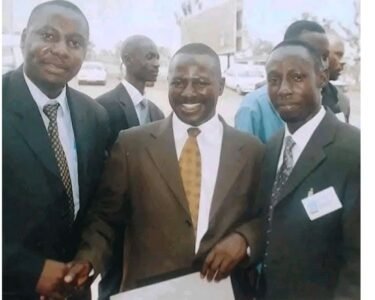The Minister of State for Works, Hon. Musa Ecweru, has attributed the worsening state of Uganda’s roads to a staggering Shs1.3 trillion debt that the now-rationalised Uganda National Roads Authority (UNRA) owes to contractors.
Ecweru made the revelation on Wednesday, April 16, 2025, during a heated parliamentary debate chaired by Deputy Speaker Thomas Tayebwa. The discussion followed the presentation of a report by the Committee on Physical Infrastructure on budget priorities for the Works and Transport sector in the 2025/2026 financial year.
Responding to growing concerns from Members of Parliament over impassable roads and deteriorating bridges, Ecweru said the debt was inherited from UNRA and stemmed from unpaid obligations to contractors for incomplete road works across the country.
Related
Major Road and Bridge Upgrades Announced for Kira-Kyaliwajjala Stretch
Kampala’s Roads Nowhere, PM Nabanjja Urges Contractors To Speed Up
Karuma and Ayago Bridges to Reopen to All Traffic on Monday 14 April
“UNRA’s role was primarily procurement. Unfortunately, delays in payment have forced many contractors to seek court redress. In some cases, their equipment has been impounded,” Ecweru said. He cited the Mityana–Mubende road as one of the affected projects. “The contractor, Energo, has not been paid Shs60 billion. They are in court with fuel suppliers and their bank is also demanding payment.”
However, Deputy Speaker Tayebwa pushed back strongly against the minister’s remarks, accusing him of downplaying the important role that UNRA played in Uganda’s road infrastructure development.
“The statement you made about UNRA is very unfortunate. It would suggest that Parliament has been appropriating funds for nothing,” Tayebwa said. “UNRA didn’t just procure contractors—they managed projects and delivered roads. The fact is, when UNRA was functioning, roads were being built. Now that it’s under your ministry, the contractors are vanishing.”
Tayebwa demanded that the minister recognize and record the contribution made by UNRA engineers and staff. “Those engineers you’re undermining were working tirelessly under difficult conditions. You even praised them before. Let the record reflect their efforts,” he added.
The debate also brought to light cost escalations and project delays on several high-profile road developments. Committee Chairperson Hon. Tonny Awany pointed to the Busega–Mpigi Expressway, which was initially budgeted at Shs547 billion but has ballooned to Shs1.3 trillion due to inadequate designs and multiple revisions.
“The original funds were depleted by 2024, and yet only 40 percent of the project is complete. This exposes government to delayed payment penalties and legal claims,” Awany noted.
Also Read
Traffic Police Issues Strict Guidelines Ahead Of Easter Celebrations
CDF Muhoozi Names Maj Gen Otto New Chief of Defence Intelligence
Bobi Wine’s Bodyguards Committed to High Court for Trial: A Timeline of Events
Baguma 28, Who Attempted To Attack Museveni At Kawempe Rally Pleads Guilty
He also flagged the Kampala–Jinja Expressway as another example of poor planning, with Shs6 billion already lost in commitment fees.
Otuke County MP Hon. Paul Omara questioned the government’s abandonment of the Lira–Aloi–Kotido–Abim road project, a 179-kilometre stretch that had reportedly met all the prerequisites for construction.
“How is it possible that after completing design variations and compensating affected residents, this road is missing from the National Development Plan? How do we defend such inconsistencies in government planning?” Omara asked.
The debate has once again ignited calls for greater transparency and efficiency in Uganda’s infrastructure sector, as lawmakers demand answers over ballooning costs, abandoned projects, and the growing burden of unpaid contractor claims.





